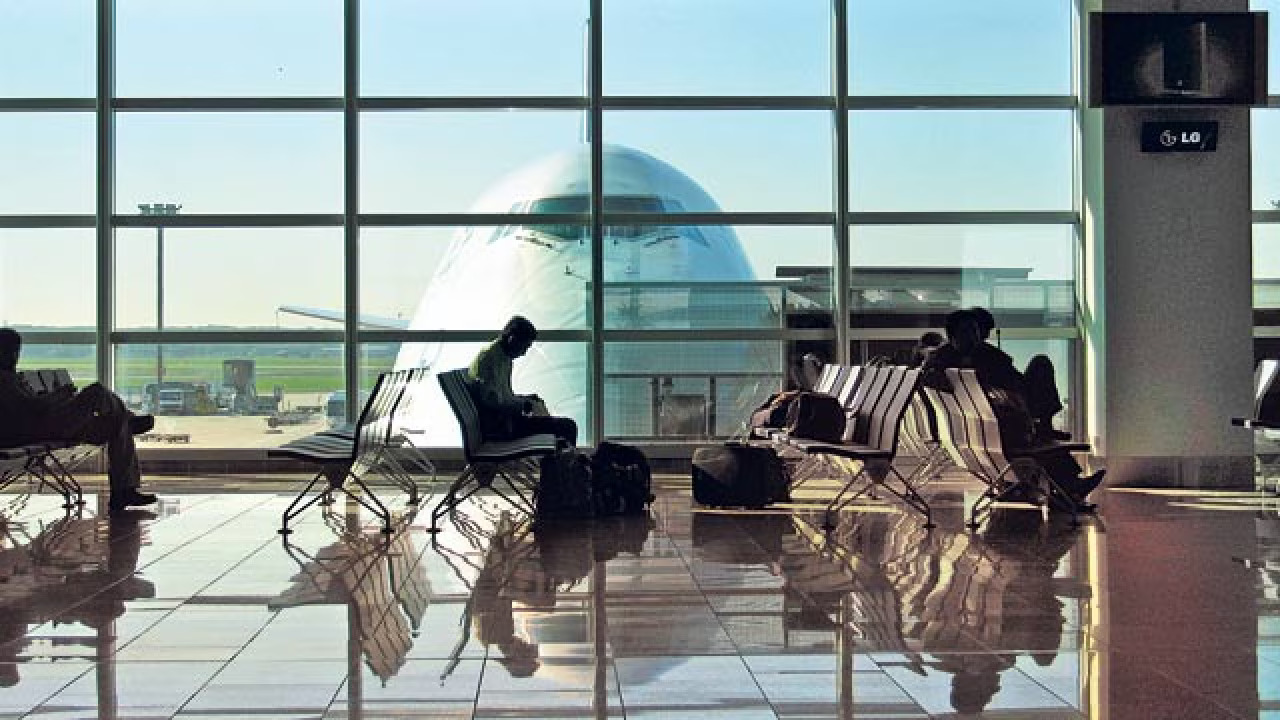The Navi Mumbai International Airport draws closer, an all-party action committee has intensified its demand for the facility to be named after the late leader D.B. Patil, issuing a stark warning of an “explosion of discontent” if their plea is not met.
Dashrath Patil, chairman of the Loknete D.B. Patil Navi Mumbai International Airport All-Party Action Committee, reiterated this demand during a recent press conference, underscoring the deep-seated local sentiment attached to the issue. This ongoing dispute highlights the complex interplay between urban development, historical recognition, and community aspirations, a crucial aspect in shaping truly equitable and human-centric cities.
The committee’s insistence on naming the new airport after Loknete D.B. Patil stems from his significant legacy as a champion of farmers’ and landowners’ rights. Patil, a former Member of Parliament (MP), spearheaded numerous protests against the City and Industrial Development Corporation (CIDCO) during the decades-ago land acquisition process in Panvel tehsil, Raigad district. His unwavering advocacy for the local populace during a period of significant displacement and transformation has cemented his status as a revered figure within the community. For the action committee, honouring Patil by naming the airport after him is a matter of profound respect and acknowledgement of his contributions to the very land on which the airport now stands.
Dashrath Patil explicitly called for the immediate naming of the Navi Mumbai International Airport after Loknete D.B. Patil. He formally requested Prime Minister Narendra Modi to convene a meeting with the action committee to address this pressing concern. The committee chairman emphasised that the issue of the airport’s nomenclature has been pending with the Central government despite resolutions passed in both houses of the Maharashtra legislature advocating for the D.B. Patil name. “The state government should immediately organise a meeting of the office-bearers action committee along with PM Modi and announce the name. Otherwise, there will be an explosion of discontent,” he warned, signalling the potential for widespread public agitation if the demand remains unaddressed.
With the airport’s construction largely complete and flight operations anticipated to commence as early as November, the urgency of the committee’s demand has escalated. The readiness of the physical infrastructure contrasts sharply with the unresolved symbolic recognition, creating a focal point for local grievances. The committee’s persistent advocacy underscores the human element in large-scale infrastructure projects – beyond concrete and steel, these developments often carry deep historical and cultural resonance for the communities they impact. Ignoring these sentiments can lead to prolonged social friction, undermining the very concept of inclusive urban growth.
The naming of public infrastructure, particularly prominent facilities like international airports, often becomes a potent symbol of identity, history, and political recognition. In this instance, the demand to name the Navi Mumbai airport after D.B. Patil transcends mere nomenclature; it represents a community’s desire to see its history and the sacrifices made for development acknowledged and honoured. The potential for “discontent” to “explode” if the demand is not met serves as a crucial warning to authorities regarding the importance of engaging with local sentiments and finding solutions that reflect a broader commitment to social equity and historical justice. As cities like Navi Mumbai continue to evolve as economic hubs, ensuring that development is balanced with cultural reverence and community welfare remains paramount for fostering truly sustainable, gender-neutral, and harmonious urban environments. The resolution of this naming dispute will be a critical test of inclusive governance and a reflection of how local historical narratives are integrated into the fabric of modern urban landscapes.
Also Read: IndiGo Connects Adampur Mumbai Direct Boosting Regional Trade


